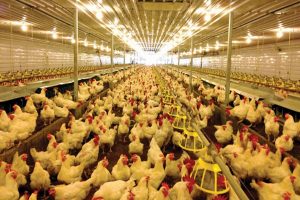THE Department of Agriculture (DA) said it is relaxing import bans, allowing vaccine imports, and exploring new types of feed to help contain the rising prices of poultry products, including eggs.
“Tactical intermediation is needed to tackle this ‘double-edged sword.’ On one hand, we see (pent-up) demand for poultry products… resulting from the pandemic. On the other hand, we see a drop in output as poultry producers hold back on production due to several factors, including rising prices of inputs and poultry diseases,” Agriculture Secretary William D. Dar said in a statement.
“The DA is conducting dialogues with other countries for the possible sourcing of alternative feed ingredients to lower production costs for the poultry sector,” he added.
The Bureau of Animal Industry (BAI) has also issued special import permits for vaccines against poultry diseases like inclusion body hepatitis.
An easing of the poultry import ban on Belgian products is also in the works.
The DA will also soon allow the import of poultry from non-infected parts of Spain, Denmark and the Czech Republic to bolster the breeding stocks.
BAI Director Reildrin G. Morales said in a report to Mr. Dar that the local and national governments must ensure the smooth flow of farm products from production areas to markets.
Mr. Morales said producers are holding back production to minimize losses and are experiencing increased competition as hog raisers shifted to poultry and egg production after their herds were reduced by African Swine Fever.
“Their entry created surplus production, and that the high cost of inputs, notably feed ingredients, has added to the pressure on poultry producers,” Mr. Morales said.
“(The) opening of the economy led to increased spending by families on meat and poultry products. However, restrictions on the movement of live birds, poultry products and by-products due to avian influenza outbreaks have caused imbalances in the supply chain from region to region,” he added. — Revin Mikhael D. Ochave
